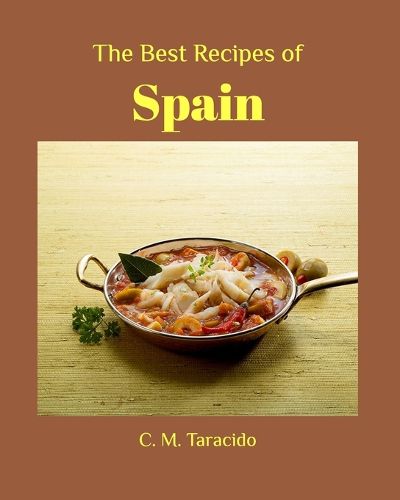Readings Newsletter
Become a Readings Member to make your shopping experience even easier.
Sign in or sign up for free!
You’re not far away from qualifying for FREE standard shipping within Australia
You’ve qualified for FREE standard shipping within Australia
The cart is loading…






This title is printed to order. This book may have been self-published. If so, we cannot guarantee the quality of the content. In the main most books will have gone through the editing process however some may not. We therefore suggest that you be aware of this before ordering this book. If in doubt check either the author or publisher’s details as we are unable to accept any returns unless they are faulty. Please contact us if you have any questions.
The cooking of Spain If art is linked to the history of a people, their cooking is linked to the palate. In other words, cooking is linked to their evolutionary, genealogical, and almost genetic processes. To sample the food is one of the best ways to better know a people, as if penetrating into the intimacy of their homes. The kitchen has traditionally been one of the few corners of culture where women have had free access. It is easy to notice how feminine sensibility has left its imprint in this realm. Cooking "al amor de la lumbre" (by the warmth of the fire), as this very Spanish saying points out, refers to the tender dedication that is required to prepare a meal. We should also remember that the expression "buen gusto" (good taste) was a philosophical concept which originated in the Spanish court of the Catholic Sovereigns (Ferdinand and Isabella). All publications from that time demanded emphatically on having "good taste." It could well be said that in Spain humanism begins on the palate. The first golden rule of life was that things should be made in good taste, pleasing our sensibilities. Ancient Spanish cooking tradition is obviously linked to Mediterranean cultural trends. The basic ingredient of our food is always olive oil, an element of classical culture, as smooth and slick as Aristophane's wit.
$9.00 standard shipping within Australia
FREE standard shipping within Australia for orders over $100.00
Express & International shipping calculated at checkout
This title is printed to order. This book may have been self-published. If so, we cannot guarantee the quality of the content. In the main most books will have gone through the editing process however some may not. We therefore suggest that you be aware of this before ordering this book. If in doubt check either the author or publisher’s details as we are unable to accept any returns unless they are faulty. Please contact us if you have any questions.
The cooking of Spain If art is linked to the history of a people, their cooking is linked to the palate. In other words, cooking is linked to their evolutionary, genealogical, and almost genetic processes. To sample the food is one of the best ways to better know a people, as if penetrating into the intimacy of their homes. The kitchen has traditionally been one of the few corners of culture where women have had free access. It is easy to notice how feminine sensibility has left its imprint in this realm. Cooking "al amor de la lumbre" (by the warmth of the fire), as this very Spanish saying points out, refers to the tender dedication that is required to prepare a meal. We should also remember that the expression "buen gusto" (good taste) was a philosophical concept which originated in the Spanish court of the Catholic Sovereigns (Ferdinand and Isabella). All publications from that time demanded emphatically on having "good taste." It could well be said that in Spain humanism begins on the palate. The first golden rule of life was that things should be made in good taste, pleasing our sensibilities. Ancient Spanish cooking tradition is obviously linked to Mediterranean cultural trends. The basic ingredient of our food is always olive oil, an element of classical culture, as smooth and slick as Aristophane's wit.